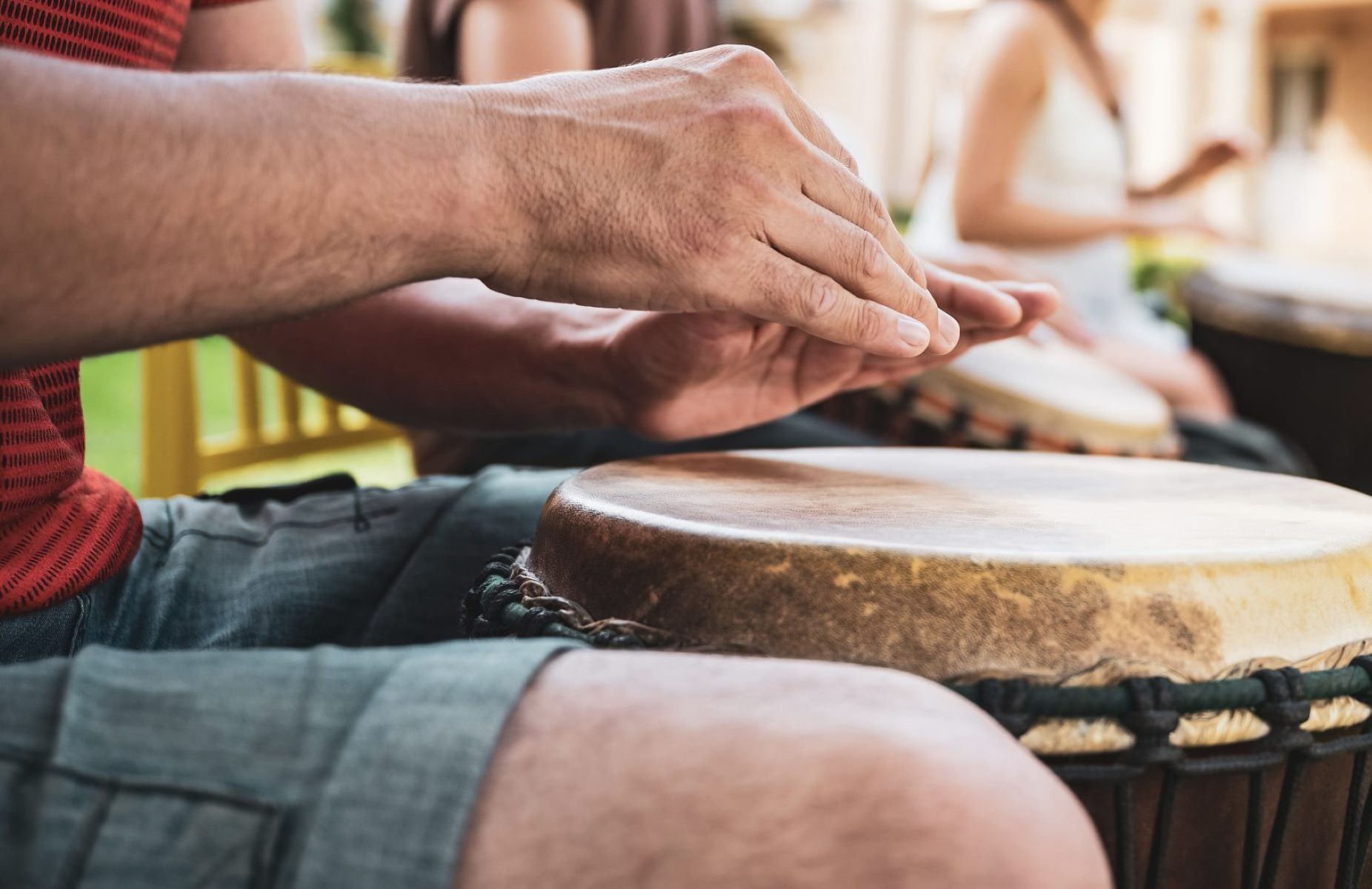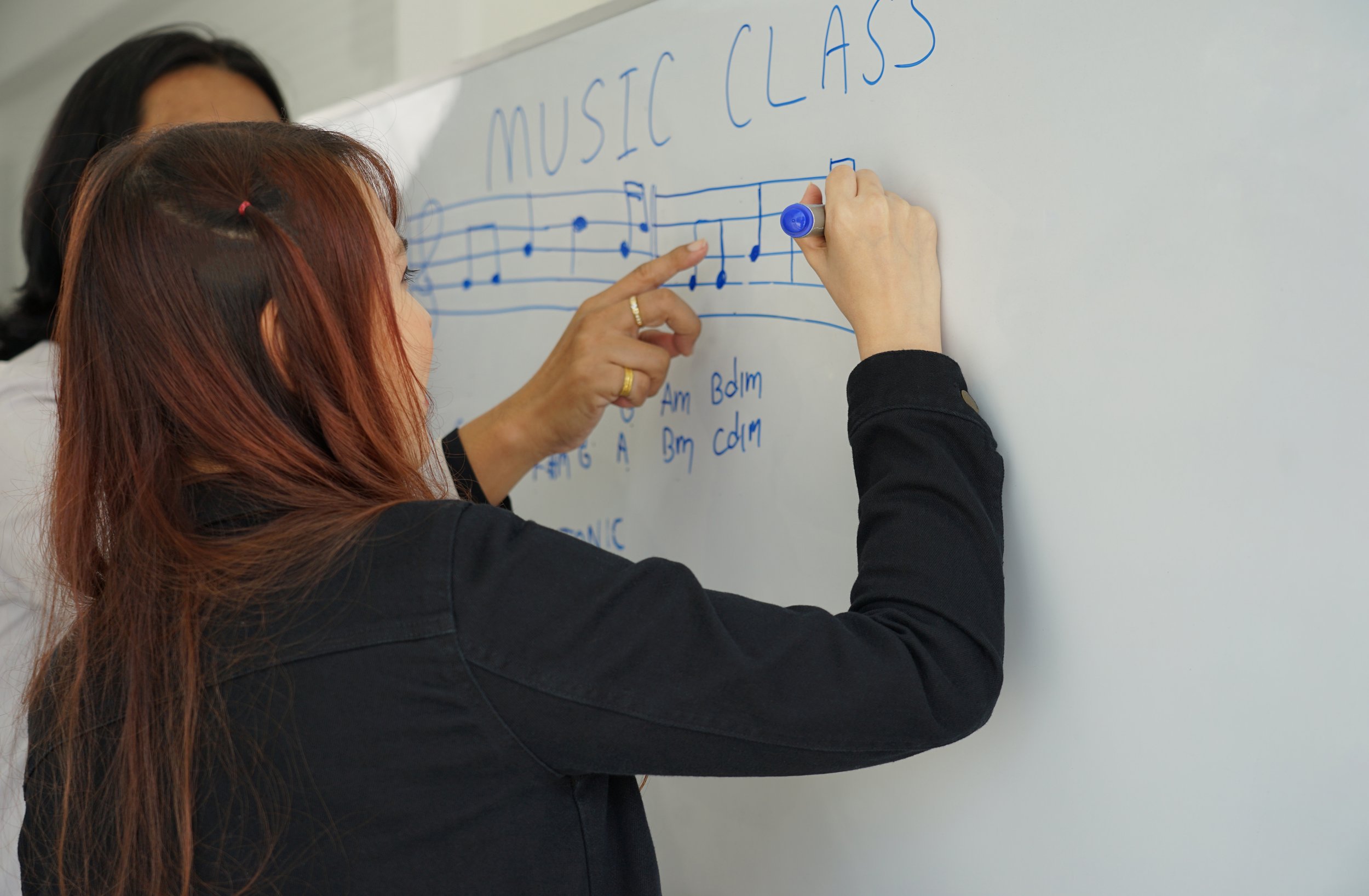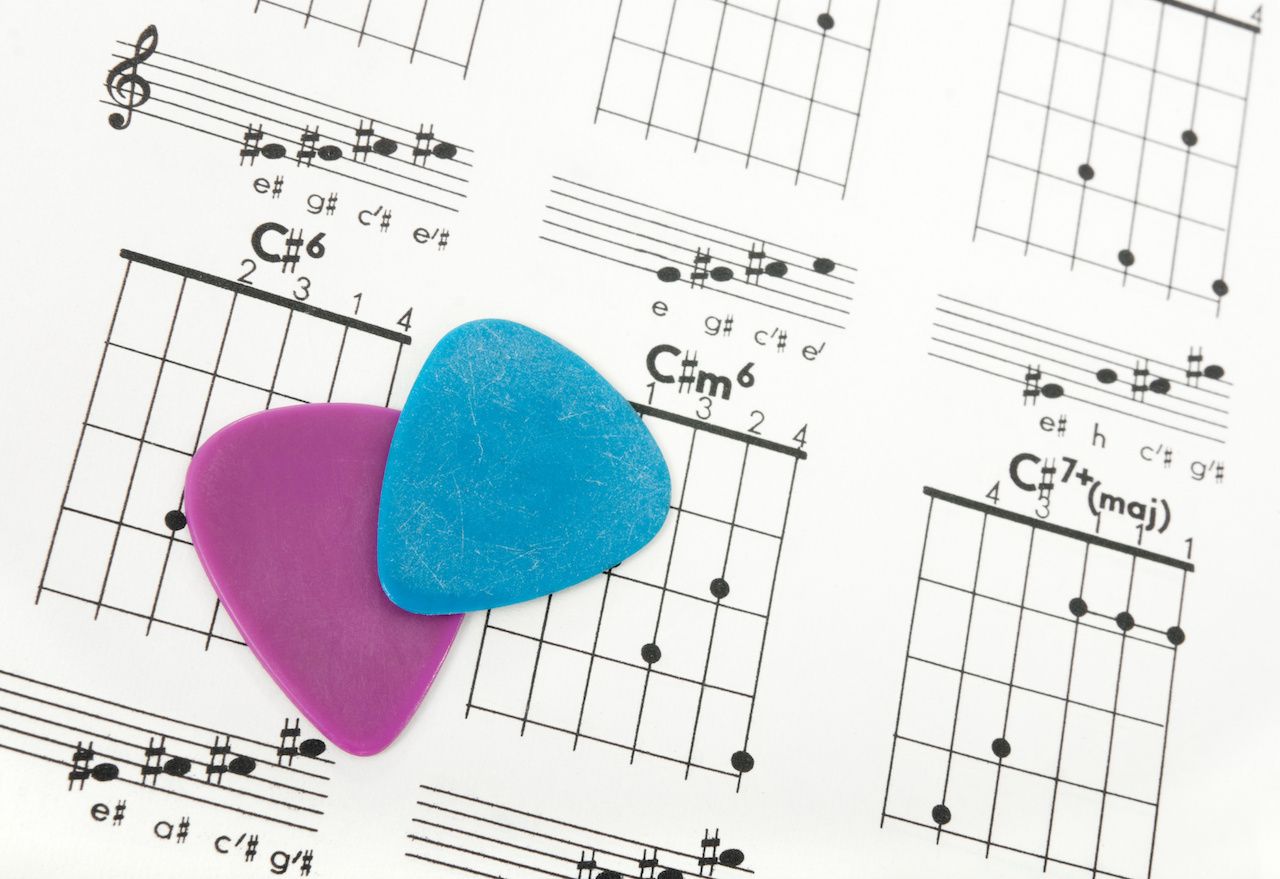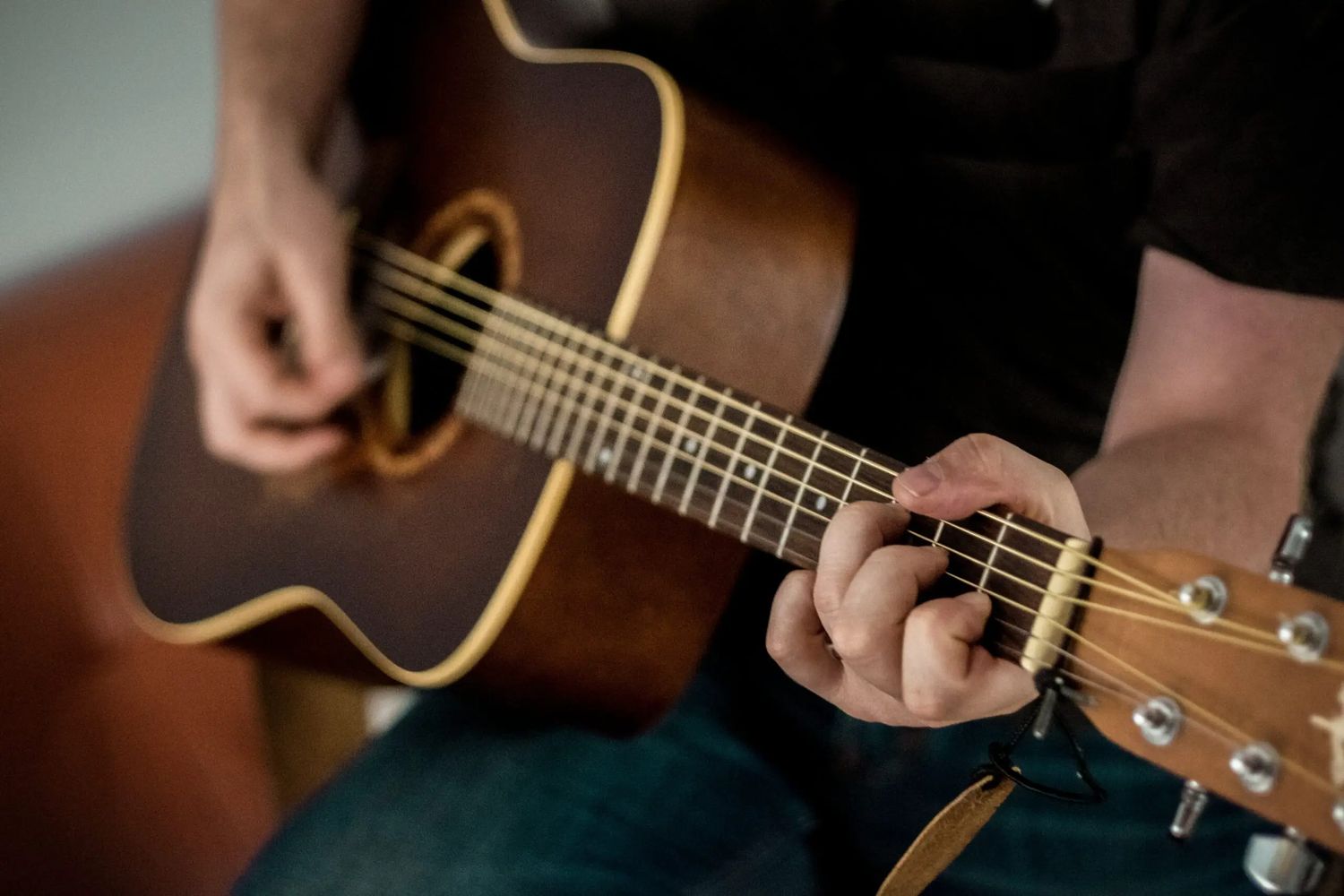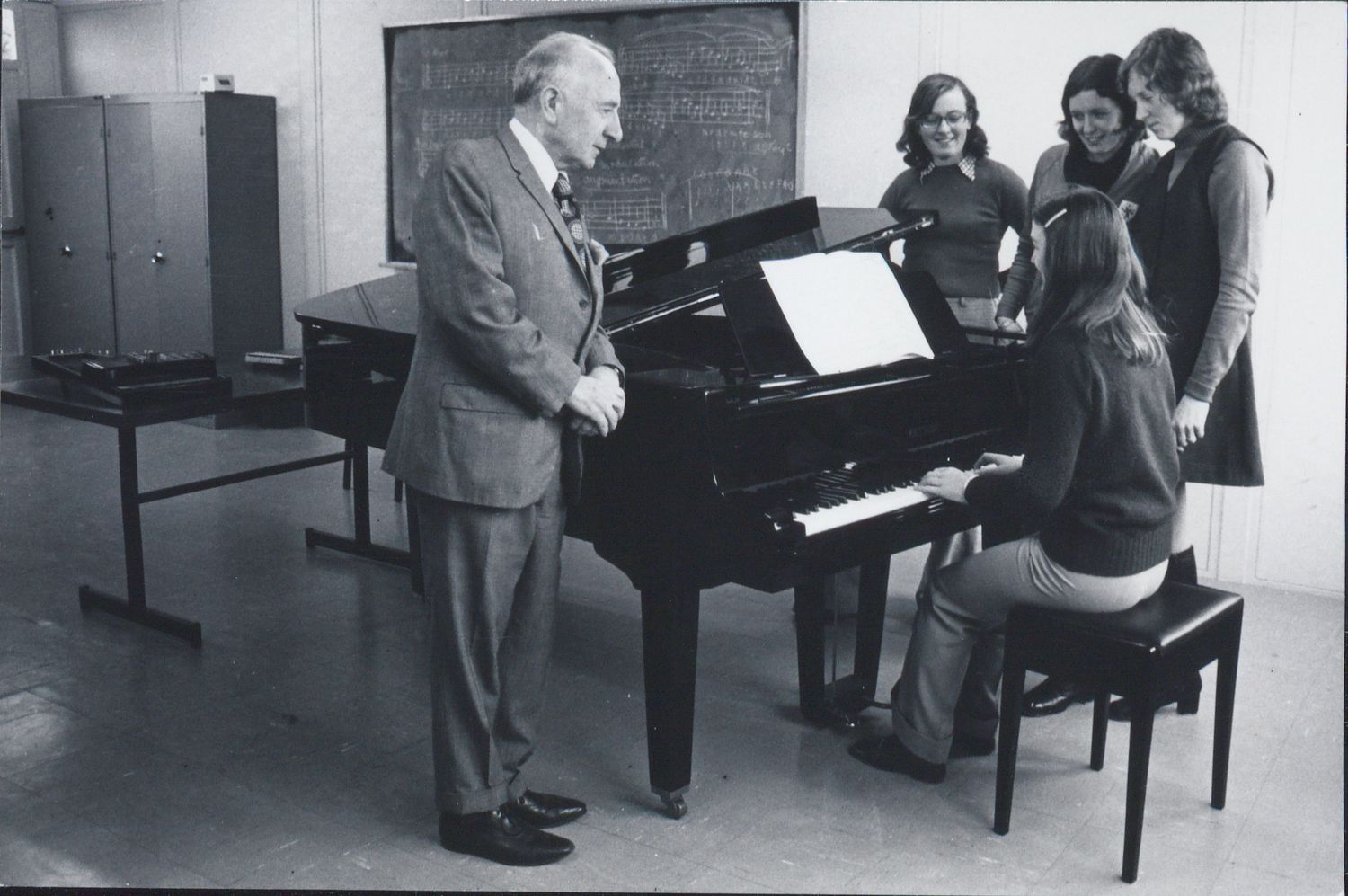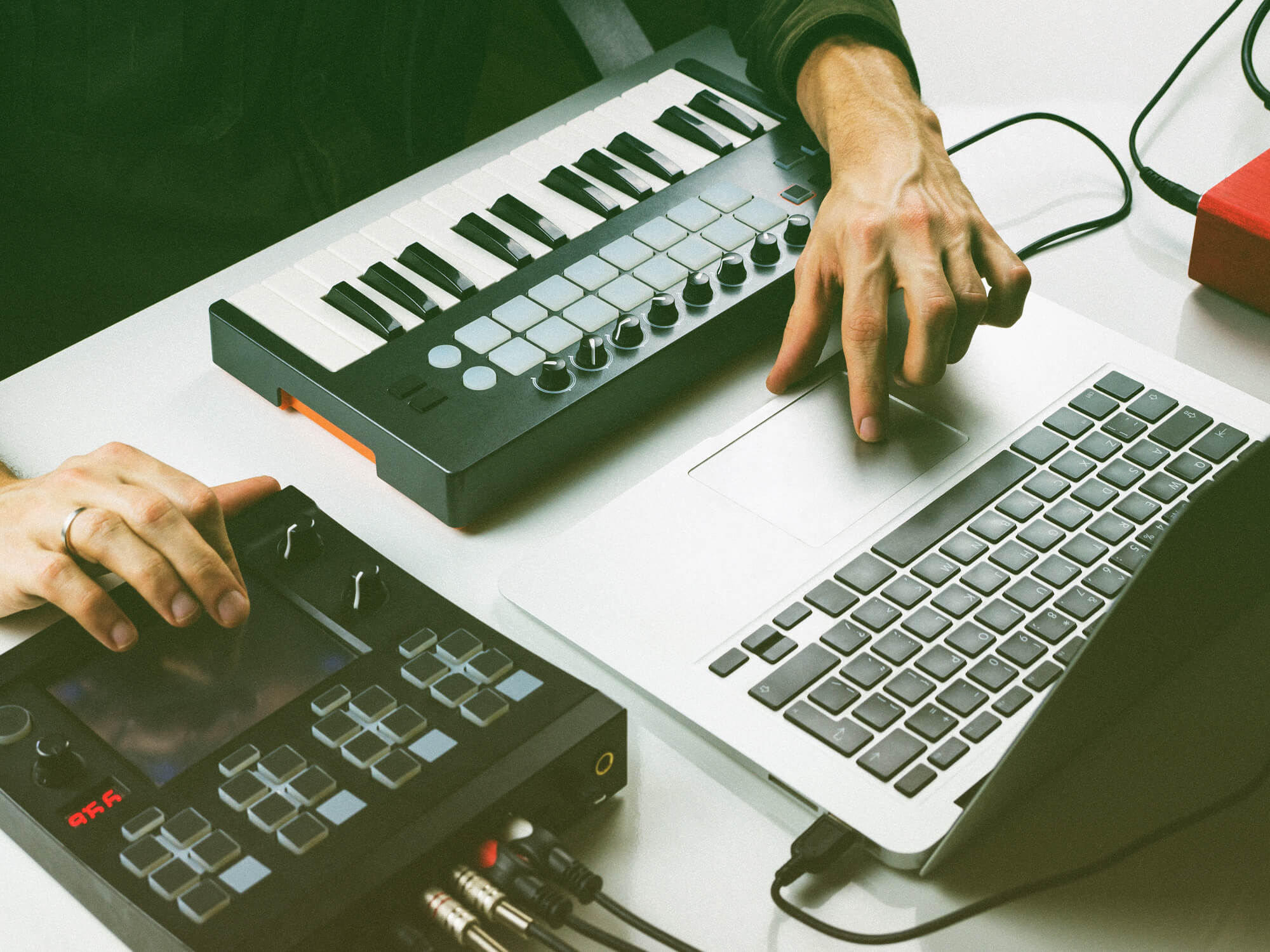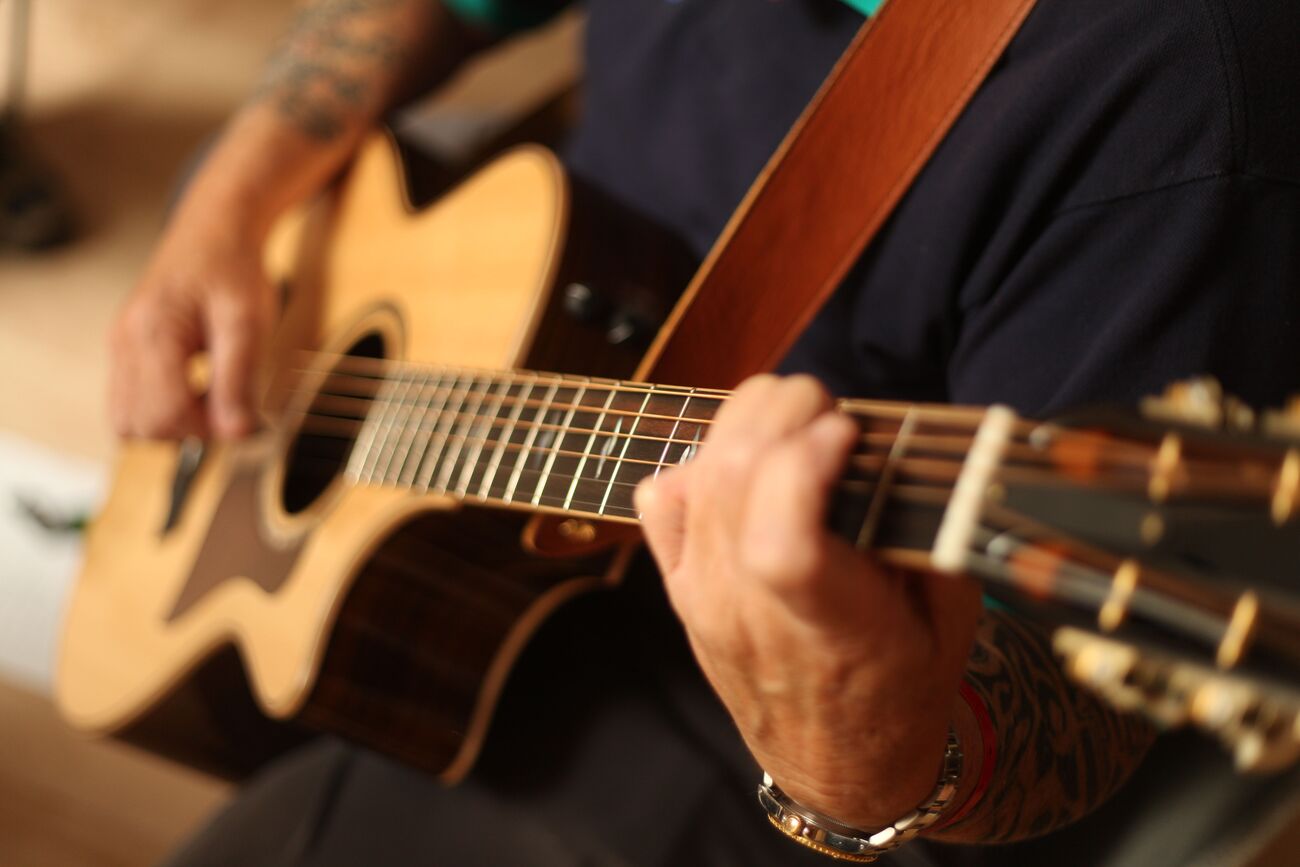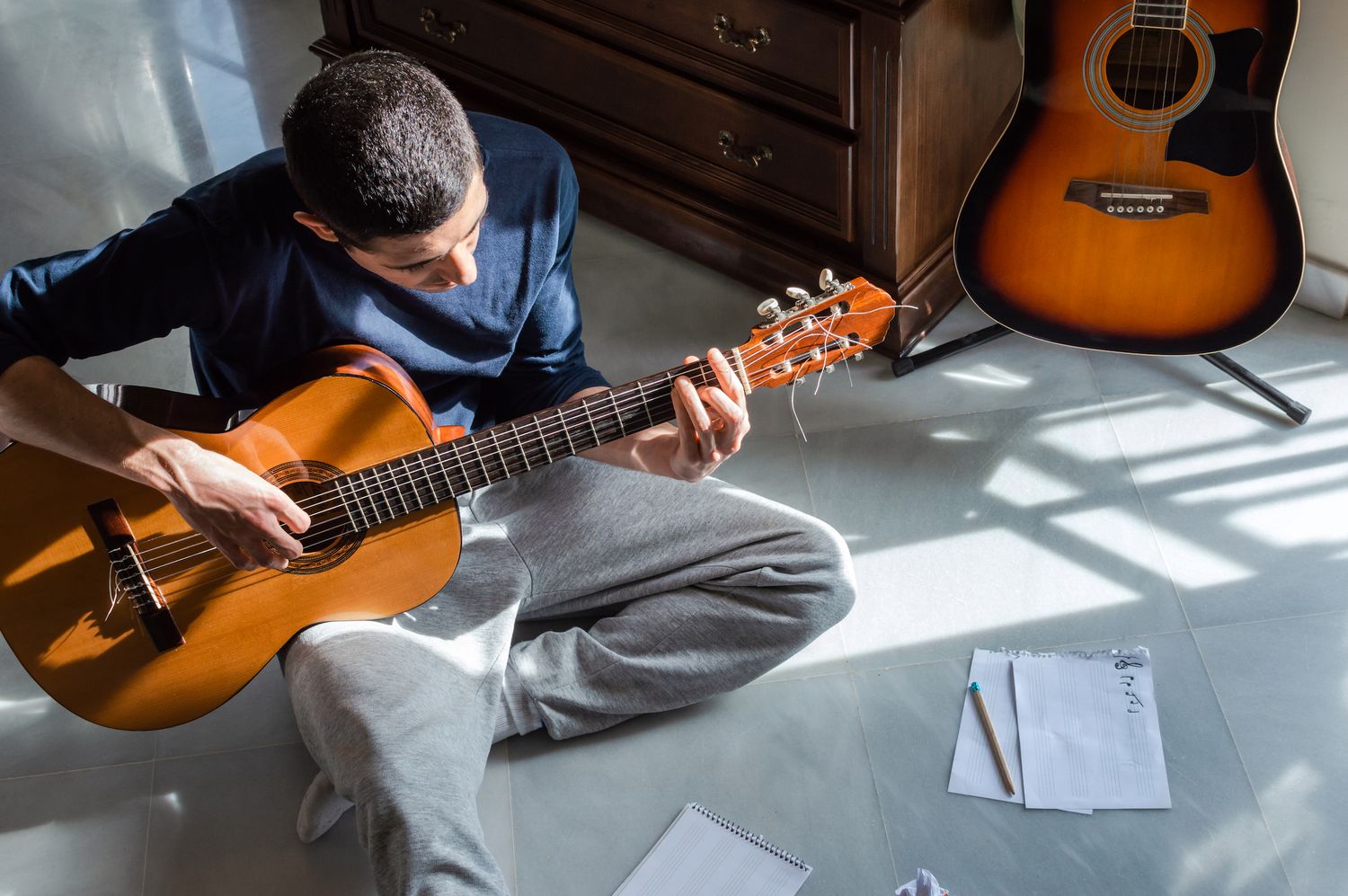Home>Instruments>Piano>How To Teach Piano To Beginners
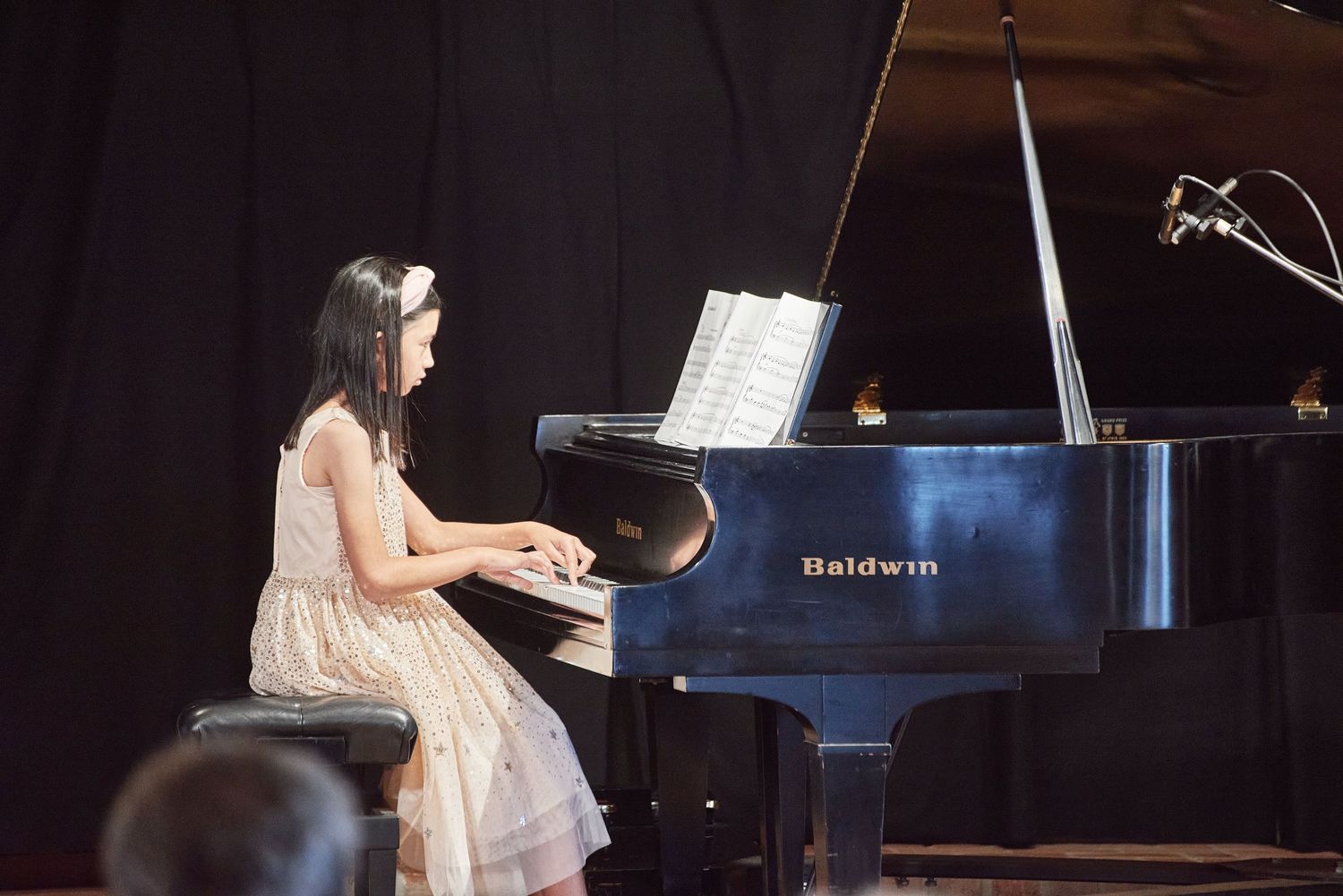

Piano
How To Teach Piano To Beginners
Published: February 11, 2024
Learn how to teach piano to beginners with our comprehensive guide. Discover effective techniques and tips for piano instruction. Start your students on a musical journey today!
(Many of the links in this article redirect to a specific reviewed product. Your purchase of these products through affiliate links helps to generate commission for AudioLover.com, at no extra cost. Learn more)
Table of Contents
Introduction
Teaching piano to beginners is a rewarding and enriching experience that opens the door to a lifelong journey with music. Whether you're a seasoned pianist or a music educator, introducing someone to the world of piano playing is a significant responsibility and a delightful opportunity. This article aims to provide valuable insights and practical tips for effectively teaching piano to beginners, ensuring a positive and engaging learning experience.
Learning to play the piano offers numerous cognitive and emotional benefits, making it a popular choice for individuals of all ages. As a teacher, your role goes beyond imparting musical knowledge; it involves nurturing a passion for music, instilling discipline, and fostering creativity in your students. Understanding the fundamentals of teaching piano, selecting appropriate teaching methods, setting achievable goals, and creating dynamic lesson plans are essential components of guiding beginners on their musical journey.
In this comprehensive guide, we will delve into the intricacies of teaching piano to beginners, offering valuable advice on structuring lessons, developing effective practice techniques, and cultivating a deep appreciation for music. Whether you're a private instructor, a music school educator, or a parent guiding your child's musical education, the insights shared in this article will empower you to inspire and guide budding pianists with confidence and expertise. Let's embark on this harmonious expedition, embracing the joy of sharing the gift of music with eager learners.
Understanding the Basics of Teaching Piano
Teaching piano to beginners requires a deep understanding of both musical concepts and effective pedagogical approaches. As a teacher, it’s crucial to comprehend the foundational principles of piano playing, including note reading, rhythm, hand positioning, and basic music theory. Moreover, cultivating a supportive and encouraging learning environment is essential for nurturing the budding talents of your students.
Patience and empathy are paramount when introducing novices to the piano. Recognizing that each student has a unique learning pace and individual challenges is fundamental to tailoring your teaching approach. By acknowledging the diverse learning styles and abilities of your students, you can adapt your instructional methods to cater to their specific needs, ensuring a personalized and inclusive learning experience.
Furthermore, a comprehensive grasp of piano technique is indispensable for guiding beginners. From proper posture and hand placement to understanding the nuances of dynamics and articulation, imparting these foundational skills sets the stage for a solid musical foundation. Additionally, cultivating good practice habits and addressing technical challenges with patience and constructive feedback are vital aspects of nurturing a student’s growth as a pianist.
Effective communication is also a key element in teaching piano. Being able to convey musical concepts in a clear and engaging manner fosters a deeper understanding and appreciation for the art of piano playing. Utilizing visual aids, analogies, and interactive demonstrations can significantly enhance the learning experience, making abstract musical concepts more accessible and relatable to beginners.
Understanding the cognitive and emotional development of beginners is equally important. As a teacher, recognizing the psychological aspects of learning an instrument can guide you in tailoring your approach to address any anxiety or self-doubt that students may experience. By creating a nurturing and supportive atmosphere, you can instill confidence and a positive mindset in your students, empowering them to overcome challenges and embrace the joy of musical expression.
Choosing the Right Teaching Method
When embarking on the journey of teaching piano to beginners, selecting the appropriate teaching method is a pivotal decision that significantly influences the learning experience. Various pedagogical approaches exist, each with its unique emphasis on technique, repertoire, and musical comprehension. Understanding the diverse learning styles and preferences of your students is essential in determining the most suitable method for their musical education.
One prevalent teaching approach is the traditional method, which typically involves a structured curriculum focusing on music theory, technical exercises, and classical repertoire. This method emphasizes sight-reading, proper hand positioning, and a comprehensive understanding of musical notation. It lays a robust foundation for students, equipping them with essential skills that form the bedrock of their musical journey.
Conversely, the Suzuki method, inspired by the principles of language acquisition, emphasizes immersive learning, listening, and repetition. This approach encourages a nurturing environment, where students absorb music through listening, imitation, and parental involvement. The Suzuki method fosters ear training, musical memory, and ensemble playing from the early stages of learning, nurturing a holistic and expressive approach to piano playing.
Furthermore, the Orff-Schulwerk approach integrates elemental music and movement, offering a dynamic and multi-sensory learning experience. This method encourages creativity, improvisation, and ensemble collaboration, fostering a playful and exploratory approach to music education. By incorporating rhythmic activities, elemental percussion instruments, and movement, the Orff-Schulwerk method engages beginners in a vibrant and interactive musical journey.
Additionally, the Kodály method, rooted in folk music and solfège, places a strong emphasis on singing, inner hearing, and music literacy. This approach utilizes folk songs, hand signs, and rhythmic syllables to develop a deep understanding of pitch and rhythm, laying a strong foundation for musical literacy and aural skills. The Kodály method cultivates a profound connection to music through singing and auditory comprehension, nurturing a well-rounded and musically sensitive approach to piano playing.
Ultimately, the choice of teaching method should align with the individual needs, learning styles, and musical aspirations of your students. Flexibility and adaptability in integrating elements from various pedagogical approaches can further enrich the learning experience, catering to the diverse talents and inclinations of budding pianists.
Setting Realistic Goals for Beginners
Setting achievable and realistic goals is a fundamental aspect of guiding beginners on their piano learning journey. As a teacher, it is essential to establish a clear roadmap for your students, outlining tangible milestones that inspire progress and instill a sense of accomplishment. By setting realistic goals, you can nurture a positive learning experience, motivate your students, and cultivate a deep passion for piano playing.
When defining goals for beginners, it is crucial to consider their individual abilities, prior musical experience, and personal aspirations. Tailoring the goals to each student’s unique journey fosters a sense of ownership and relevance, empowering them to take ownership of their musical growth. Whether the goal is mastering a specific piece, conquering technical challenges, or achieving proficiency in sight-reading, it should be both aspirational and attainable within a reasonable timeframe.
Furthermore, breaking down long-term objectives into manageable and incremental steps is instrumental in maintaining motivation and momentum. By delineating smaller milestones, such as mastering a particular scale, refining a specific musical passage, or memorizing a segment of a composition, beginners can experience a sense of progress and accomplishment at each stage of their musical development.
Encouraging students to participate in recitals, ensemble performances, or musical examinations can also serve as tangible goals that motivate and inspire dedication to practice and refinement of skills. Public performances provide valuable opportunities for students to showcase their progress, receive constructive feedback, and experience the exhilaration of sharing music with an audience, reinforcing their commitment to musical excellence.
Moreover, fostering a growth mindset and emphasizing the intrinsic value of the learning process itself, rather than solely focusing on end results, is integral to nurturing a resilient and enthusiastic approach to piano playing. By celebrating incremental achievements, embracing challenges as opportunities for growth, and fostering a supportive and nurturing learning environment, students develop a profound appreciation for the transformative power of perseverance and dedication.
Ultimately, setting realistic goals for beginners involves a delicate balance of ambition and attainability, tailored to each student’s unique abilities and aspirations. By instilling a sense of purpose, fostering resilience, and celebrating the joy of musical exploration, teachers play a pivotal role in shaping the musical journey of budding pianists, nurturing their potential and igniting a lifelong love for the piano.
Creating Engaging Lesson Plans
Designing dynamic and engaging lesson plans is essential for captivating the interest of beginner piano students and fostering a deep and enduring love for music. A well-crafted lesson plan not only imparts essential musical knowledge but also inspires creativity, curiosity, and a sense of accomplishment in students. By infusing variety, interactivity, and relevance into lesson plans, teachers can create a stimulating and enriching learning experience that resonates with their students.
One effective approach to creating engaging lesson plans is to incorporate a diverse repertoire that spans different musical genres, styles, and historical periods. By exposing students to a rich tapestry of musical compositions, from classical masterpieces to contemporary pieces and popular tunes, teachers can ignite students’ curiosity and broaden their musical horizons. This eclectic approach not only cultivates a versatile and well-rounded musical sensibility but also allows students to explore and express their individual musical preferences.
Integrating interactive and multimedia resources into lesson plans can also enhance engagement and comprehension. Utilizing educational apps, interactive software, and multimedia presentations can make abstract musical concepts more accessible and relatable to beginners. Visual aids, audio recordings, and video demonstrations can provide valuable supplementary materials that reinforce learning and deepen students’ understanding of musical elements and techniques.
Furthermore, incorporating creative activities such as composition exercises, improvisation prompts, and collaborative ensemble playing can infuse excitement and spontaneity into piano lessons. By encouraging students to explore their creativity, experiment with musical ideas, and collaborate with their peers, teachers foster a sense of ownership and artistic expression, nurturing a holistic and immersive musical experience.
Setting clear learning objectives and incorporating achievable challenges within lesson plans cultivates a sense of purpose and progression for students. Structuring lessons to include technical exercises, sight-reading practice, ear training activities, and musical analysis instills a comprehensive understanding of musical elements while providing students with tangible goals to strive towards. Additionally, integrating opportunities for self-expression, interpretation, and personalization within lesson plans empowers students to imbue their performances with individuality and emotion, fostering a profound connection to the music they play.
Ultimately, creating engaging lesson plans involves a thoughtful balance of structure, creativity, and relevance. By tailoring lesson content to resonate with students’ interests, learning styles, and aspirations, teachers can inspire a lifelong passion for piano playing, nurturing confident, expressive, and musically sensitive individuals.
Developing Effective Practice Techniques
Mastering the piano is not only about receiving instruction during lessons but also about dedicated and effective practice outside of the classroom. As a teacher, guiding beginners in developing efficient and purposeful practice techniques is instrumental in their musical growth and proficiency. By instilling good practice habits and providing valuable insights into effective practice strategies, teachers empower students to maximize their progress and derive greater satisfaction from their musical endeavors.
One fundamental aspect of effective practice is establishing a consistent and structured routine. Encouraging students to allocate dedicated practice time each day fosters discipline and reinforces the importance of regularity in skill development. Emphasizing the quality of practice over quantity, and guiding students to focus on specific objectives during each practice session, ensures that their efforts yield tangible results and meaningful progress.
Furthermore, promoting mindful and deliberate practice techniques is essential for optimizing learning outcomes. Encouraging students to identify and address specific challenges within a piece, isolate problematic passages, and apply targeted practice strategies cultivates a focused and analytical approach to mastering musical repertoire. By breaking down complex pieces into manageable sections and employing techniques such as slow practice, rhythmic variation, and strategic repetition, students develop a deeper understanding of the music and refine their technical proficiency.
Effective practice also involves nurturing a keen sense of self-awareness and critical evaluation. Guiding students to listen attentively to their playing, identify areas for improvement, and apply constructive self-assessment techniques fosters autonomy and self-correction. Encouraging students to record their practice sessions, engage in reflective journaling, and actively seek solutions to technical and interpretive challenges cultivates a proactive and empowered approach to musical development.
Additionally, integrating diverse practice methods, such as memory exercises, visualization techniques, and kinesthetic approaches, enhances students’ cognitive and sensory engagement with the music. By exploring multi-faceted practice strategies that encompass auditory, visual, and tactile modalities, students deepen their musical understanding and develop a more holistic and embodied connection to the repertoire they are learning.
Ultimately, developing effective practice techniques involves instilling a sense of purpose, mindfulness, and autonomy in students’ practice routines. By equipping beginners with the tools to practice strategically, attentively, and creatively, teachers empower them to navigate challenges with confidence, derive joy from their progress, and cultivate a lifelong love for the piano.
Fostering a Love for Music
Instilling a deep and enduring love for music is at the heart of teaching piano to beginners. Beyond technical proficiency and theoretical knowledge, nurturing a genuine passion for music enriches the learning experience and imbues students with a lifelong appreciation for the art form. As a teacher, fostering a love for music involves creating a nurturing and inspiring environment, integrating creativity and self-expression into lessons, and kindling a sense of wonder and curiosity in students’ musical exploration.
Creating a supportive and nurturing learning environment is paramount to fostering a love for music. Encouraging open communication, embracing individuality, and celebrating artistic expression instills a sense of belonging and emotional connection to the musical journey. By fostering a safe and encouraging space where students feel valued and understood, teachers cultivate a positive and enriching musical experience that resonates deeply with their students.
Integrating creativity and self-expression into piano lessons empowers students to develop a personal and emotive connection to the music they play. Encouraging improvisation, interpretation, and composition nurtures a sense of ownership and artistic autonomy, allowing students to infuse their performances with individuality and emotion. By embracing creativity as an integral part of musical expression, teachers inspire students to approach music with spontaneity, imagination, and personal significance.
Furthermore, kindling a sense of wonder and curiosity in students’ musical exploration fosters a deep and enduring love for music. Introducing students to diverse musical genres, historical contexts, and cultural perspectives broadens their musical horizons and nurtures a spirit of curiosity and open-mindedness. By celebrating the rich tapestry of musical expression, teachers inspire students to embrace music as a boundless and transformative art form that transcends boundaries and resonates with the human experience.
Engaging students in active listening, music appreciation activities, and exposure to live performances further enriches their understanding and emotional connection to music. By immersing students in the beauty and emotional depth of musical masterpieces, teachers cultivate a profound and visceral appreciation for the power of music to evoke emotions, tell stories, and convey universal truths.
Ultimately, fostering a love for music involves nurturing an emotional, intellectual, and spiritual connection to the art form. By creating a nurturing and inspiring environment, embracing creativity and self-expression, and kindling a sense of wonder and curiosity, teachers play a pivotal role in shaping students’ musical identities and nurturing a lifelong love for the piano and the transformative power of music.
Conclusion
Teaching piano to beginners is a profoundly rewarding endeavor that encompasses far more than imparting technical skills and theoretical knowledge. It is a journey of nurturing creativity, instilling discipline, and fostering a profound love for music that transcends the boundaries of the piano keys. As teachers, our role extends beyond the confines of the classroom, encompassing the cultivation of resilient, expressive, and musically sensitive individuals who carry the gift of music throughout their lives.
Understanding the pivotal role of effective pedagogy, the choice of teaching method, the setting of realistic goals, and the creation of engaging lesson plans are essential components of guiding beginners on their musical journey. By infusing lessons with creativity, relevance, and interactivity, teachers inspire students to embrace the joy of musical exploration and develop a holistic understanding of piano playing.
Moreover, fostering a love for music is at the heart of our mission as educators. By creating nurturing environments, integrating creativity and self-expression into lessons, and kindling a sense of wonder and curiosity in students’ musical exploration, teachers sow the seeds of a lifelong passion for music. Through active listening, exposure to diverse musical genres, and engagement with the emotional depth of musical expression, students develop a profound appreciation for the transformative power of music.
As we conclude this exploration of teaching piano to beginners, it is evident that the impact of a dedicated and empathetic teacher extends far beyond the confines of the lesson room. It resonates in the confident keystrokes of a budding pianist, the emotive interpretations of a musical piece, and the enduring love for music that enriches the fabric of their lives. By embracing the art of teaching with passion, empathy, and creativity, we empower our students to embark on a harmonious journey that transcends technical proficiency, nurturing a lifelong love for the piano and the transformative power of music.

